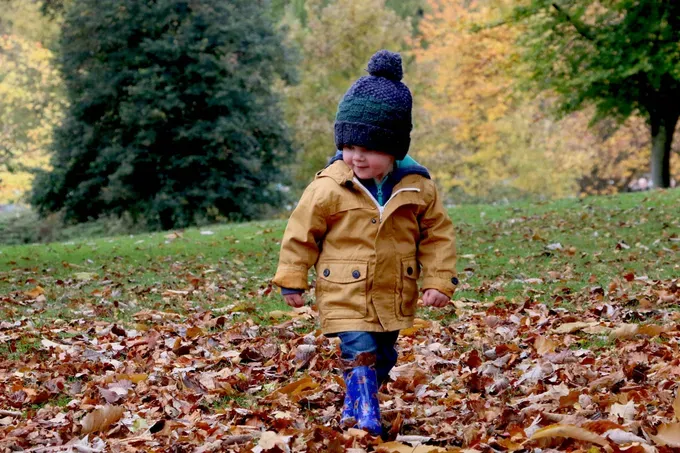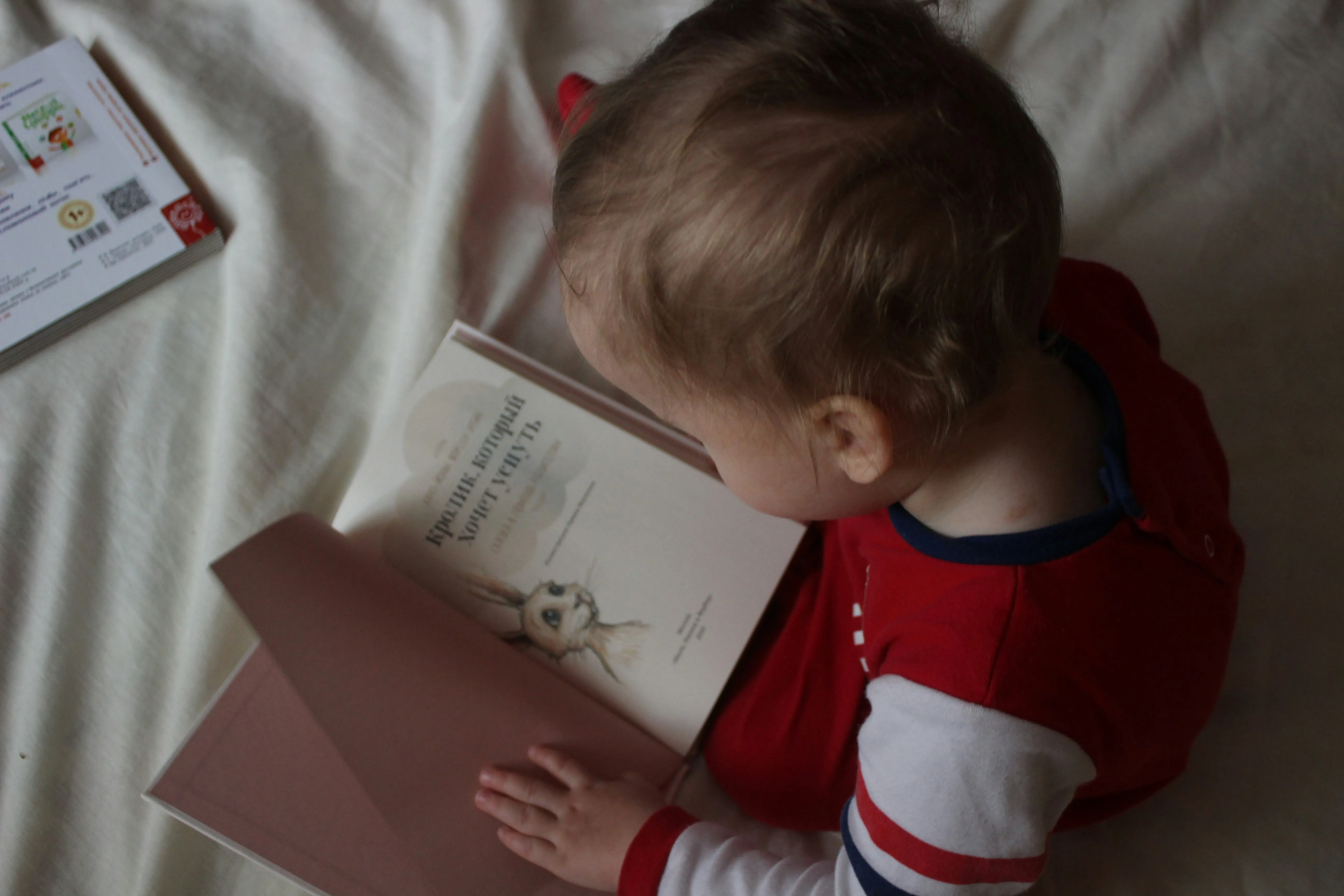Mastering Cognitive Development in Early Childhood Intro

As parents, we all want to see our children grow and succeed in every aspect of their lives. One crucial area of development that is often overlooked is cognitive development. This encompasses a range of skills, including memory, problem-solving, and critical thinking, that form the foundation for learning and success in school and beyond. In this post, we will explore what cognitive development is and why it's essential to nurture it during early childhood. We'll discuss key cognitive skills that young children develop and offer tips on how to encourage them through play and other activities. We'll also examine the role of early education in cognitive development and share ideas for preparing your child for the transition to preschool. By the end of this article, you'll have a deeper understanding of how you can support your child's cognitive growth at home and set them up for future success.
Understanding Cognitive Development

Cognitive development plays a crucial role in a child’s intellectual growth during the early years. Learning experiences greatly impact this development, especially during the preschool years. It encompasses various areas of development, influencing a child's ability to learn and adapt to new experiences on a regular basis.
Defining Cognitive Development
Cognitive skills in early childhood encompass problem-solving, pretend play, and learning experiences, laying the foundation for future learning. These stepping stones of cognitive development start from birth, predicting a child's future learning potential. Understanding cognitive growth in early childhood is essential for parents and caregivers to provide activities that enhance their child's cognitive skills.
Importance of Cognitive Development in Early Childhood
In the earliest years of age, cognitive development plays a vital role in shaping a child’s cognitive characteristics. It fosters the child’s ability to learn, understand, and process new things, influencing their cognitive skills in early childhood. Regular cognitive development stepping stones are essential for a child's growth and development.
Key Cognitive Skills in Early Childhood

Key Cognitive Skills in Early Childhood: In early childhood, cognitive skills encompass problem-solving, classification, and imitation. These are crucial for cognitive learning and vocabulary development in preschoolers. Piaget’s cognitive development theory explains cognitive skills like pretend play. It's about the child’s cognitive growth from birth, influencing their cognitive skills. Early literacy skills are also part of cognitive development.
Order and Sequencing
Engaging in activities that involve order and sequencing is vital for fostering cognitive development in early childhood. These activities enhance a child's cognitive skills by helping them understand the order of events and follow sequential steps. Regular engagement in such tasks supports the overall cognitive development in young children, contributing to their cognitive development stepping stones.
Sorting and Classifying
Engaging children in sorting and classifying tasks supports their child development, promoting cognitive growth. These activities enhance problem-solving abilities and categorization skills, crucial cognitive development stepping stones. By learning to classify objects based on different criteria, preschoolers develop vital cognitive skills. Regular engagement in such tasks fosters early childhood cognitive development, laying the foundation for future learning.
Role Play and Make-Believe
Engaging in pretend play and make-believe is crucial for child development. These activities stimulate cognitive thinking, enhancing problem-solving skills from an early age. By fostering cognitive development regularly, young children can begin to understand and navigate the world around them, laying the foundation for future cognitive development stepping stones. Reading to the child daily further supports this cognitive growth.
Right or Left-Handedness
Understanding the preference for right or left-handedness is an integral part of child development. Early cognitive development involves a child's proficiency in using both hands effectively. The development of handedness is a crucial aspect of cognitive growth in early childhood, influencing a child's cognitive skills early in life. It plays a pivotal role in shaping cognitive characteristics and impacting overall cognitive growth.
Cognitive Development Stepping Stones in Young Children

Encouraging problem-solving in children enhances cognitive skills, stimulating cognitive changes in early childhood. Regular developmental activities foster intellectual development through engaging experiences and support cognitive growth. Exploring cognitive characteristics in a personalized way and developing early literacy skills are essential in child development. These stepping stones pave the way for a strong cognitive foundation in young children.
Recognizing Patterns
Promote child development by introducing pattern recognition activities, engaging them in classifying objects, and encouraging cognitive skills through games. Exposure to patterns supports cognitive development, defining it in early childhood and stimulating literacy skills. These activities enhance the cognitive areas of development while targeting cognitive development stepping stones regularly.
Following Instructions
Encourage children to practice obeying simple commands, fostering cognitive development in early childhood. Use appropriate tasks to promote listening and following instructions, supporting cognitive learning. Cultivate cognitive skills by offering clear, straightforward tasks and activities. Create opportunities for children to develop cognitive skills through instruction-based activities, aiding in their overall child development.
Growth of Memory
Engage children in activities that boost cognitive skills. Implement memory-enhancing games and activities to support cognitive development. Foster cognitive changes through memory-boosting exercises regularly. Encourage cognitive growth by introducing memory-boosting strategies. Object permanence recognition is a crucial stepping stone in early childhood cognitive development.
Fostering Cognitive Development

Supporting child development involves nurturing cognitive development through regular learning experiences. Family members and caregivers play a significant role in fostering cognitive development in early childhood, encouraging engaging learning experiences and literacy. These activities enhance cognitive skills, promoting cognitive development stepping stones on a regular basis for children at months or years of age.
Activities to Enhance Cognitive Skills
Engaging with picture books supports child development by encouraging vocabulary expansion and cognitive development. ABC Read Aloud Books are beneficial for formative cognitive development, while problem-solving activities and imitation exercises play a valuable role in fostering cognitive growth. Kindergarten activities also contribute significantly to enhancing cognitive skills on a regular basis.
Importance of a Healthy Diet
Proper nutrition plays a vital role in supporting cognitive changes and healthy eating habits are crucial characteristics of early childhood development. Nutrient-rich foods are essential for cognition, and a well-balanced diet is necessary for cognitive growth in early childhood. The child's diet significantly influences cognitive development, making it imperative to provide healthy and nutritious meals on a regular basis.
Cognitive Development and School Readiness
Cognitive skills, like problem solving, are crucial for early childhood development. These skills serve as stepping stones for school readiness and future learning. Activities such as pretend play and exploration foster cognitive thinking, preparing children for kindergarten. Encouraging early literacy at home enhances education enjoyment and supports cognitive development in young children, ensuring they are ready for the challenges of formal education.
The Role of Early Education in Cognitive Development
Early education programs significantly impact cognitive growth in young children, nurturing their intellectual development through regular preschool experiences. These programs foster cognitive development and literacy skills, positively influencing a child’s future success. By enhancing cognitive skills development, early education plays a crucial role in preparing children for the transition to preschool and fostering cognitive development stepping stones.
Preparing for the Transition to Preschool
Transitioning to preschool marks a significant cognitive shift in young children. The preschool years act as crucial stepping stones for cognitive development, shaping their future learning abilities. During this period, children experience substantial cognitive growth, making it critical for laying the foundation for their cognitive development. Encouraging foundational literacy and cognitive skills is essential for their preparedness for preschool.
How does cognitive development affect your child's future success?
Cognitive development in early childhood lays the foundation for future success. It shapes a child's ability to adapt, learn new things, and develop intellectual skills. Early literacy skills also play a crucial role in enhancing cognitive development.
The Importance of Nurturing Cognitive Skills in Young Children

Nurturing cognitive skills in early childhood through regular learning experiences is essential for child development. Family members play a significant role in fostering cognitive development, while caretakers should encourage cognitive development stepping stones through pretend play. This support for cognitive growth can be further strengthened by the use of picture books and reading aloud during family reading time, all of which help to encourage toddler brain development.
How to Identify and Encourage Cognitive Development Stepping Stones in Your Child
Encouraging cognitive growth in early childhood involves understanding developmental stepping stones and promoting problem-solving. Caregivers play a crucial role in identifying cognitive development stepping stones, providing learning experiences, and playing simple games to enhance cognitive skills. Recognizing cognitive development requires keen observation and nurturing cognitive development regularly.
Developing Critical Thinking
Encouraging problem-solving, questioning, and creative thinking is crucial for child development. Critical thinking skills lay the foundation for cognitive growth, preparing children for developmental stepping stones. Simple games fostering critical thinking should be incorporated into learning experiences regularly. This helps in developing essential cognitive skills, supporting overall cognitive development in early childhood.
Enhancing Problem-Solving Skills
Encouraging problem-solving in early childhood nurtures cognitive development, promoting important cognitive skills. Enhancing problem-solving positively impacts cognitive growth, contributing to developmental stepping stones. Activities should prioritize the enhancement of problem-solving skills to support cognitive stepping stones. Regular problem-solving experiences play a crucial role in early childhood cognitive development, laying the foundation for future learning and growth.
Encouraging Questioning
Encouraging young children to ask questions is fundamental in promoting cognitive development. Questioning supports learning experiences and enriches cognitive development in early childhood. Fostering curiosity and encouraging questions play a significant role in the cognitive development stepping stones for young children. By actively encouraging questioning, parents and caregivers can positively impact a child's cognitive growth.
Cultivating Creative Thinking
Encouraging imaginative play nurtures problem-solving skills. Diverse learning experiences foster cognitive growth. Picture books stimulate early childhood cognitive development. Engage in activities promoting cognitive learning. Provide opportunities for preschoolers to engage in cognitive thinking activities. These strategies contribute to cultivating creative thinking in young children, enhancing their cognitive development regularly.
The Role of Parents and Caregivers in Supporting Early Childhood Cognitive Development
Proactively engaging in regular, educational activities with young children nurtures cognitive skills development through interactive learning experiences. Creating a nurturing environment to support cognitive development stepping stones is vital, as parents and caregivers play a significant role in fostering early childhood cognitive development. Implementing examples of cognitive development in daily interactions, such as daily reading time encourages literacy and cognitive development.
Conclusion
In conclusion, early childhood cognitive development plays a crucial role in shaping a child's future success. By understanding and fostering cognitive skills such as order and sequencing, sorting and classifying, and role play, you can help your child develop important cognitive abilities. Activities that enhance cognitive skills, a healthy diet, and early education all contribute to a child's cognitive development and school readiness. As parents and caregivers, it is essential to identify and encourage cognitive development stepping stones in your child, including critical thinking, problem-solving skills, questioning, and creative thinking. By nurturing these skills, you can provide a strong foundation for your child's cognitive growth and support their overall development.
Frequently Asked Questions
What are some common challenges or delays in cognitive development, and how can they be addressed?

Common challenges or delays in cognitive development, such as language delay, learning disabilities, and ADHD, can be addressed through early intervention. Strategies like speech therapy, educational interventions, and behavioral therapies can help tackle these delays. Working closely with healthcare professionals and educators is crucial to developing tailored plans for each child's needs.
Are there any activities or exercises that can help promote cognitive development in young children?
Promoting cognitive development in young children can be achieved through various activities and exercises. Reading to them enhances language and cognitive skills. Interactive games and puzzles improve problem-solving abilities and memory retention. Encouraging imaginative play fosters creativity and critical thinking. Engaging in physical activities, like outdoor play or sports, also enhances cognitive development.
What are some red flags to look out for in terms of delayed or abnormal cognitive development?
Some signs of delayed or abnormal cognitive development in early childhood include persistent difficulties with communication, problem-solving, memory, and attention span. Delayed motor skills development and difficulty socializing with others are also red flags to watch for.
What role do caregivers and the environment play in early childhood cognitive development?
Caregivers play a crucial role in early childhood cognitive development through support and stimulation. The environment also impacts cognitive development, including language exposure and educational toys. Positive interactions with caregivers and a stimulating environment lead to better outcomes in later life.
How can parents and caregivers support cognitive development in young children?
Ways to support cognitive development in young children include engaging in frequent conversations using age-appropriate vocabulary, providing stimulating toys for problem-solving, reading regularly, fostering social interactions, and limiting screen time.






































































































































